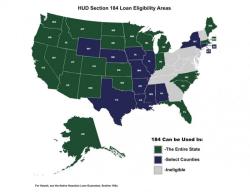What every first time homebuyer should know?
Buying a home is a significant financial and emotional investment, and for first-time homebuyers, it can be a daunting process. Here are some key insights and tips to help first-time homebuyers navigate the homebuying journey:
Understand Your Budget: Before you start shopping for a home, determine how much you can afford. Take into account your income, expenses, and down payment. Use online calculators or consult with a financial advisor to help you create a realistic budget.
Improve Your Credit Score: A good credit score is essential to secure a favorable mortgage rate. Work on improving your credit score by paying bills on time and reducing outstanding debts.
Save for a Down Payment: Saving for a down payment is a crucial part of the process. While there are programs that allow for lower down payments, a larger down payment often means lower monthly mortgage payments.
Get Pre-Approved for a Mortgage: Before you start looking at homes, get pre-approved for a mortgage. It gives you a clear idea of your budget, and it makes you a more attractive buyer to sellers.
Research the Market: Understand the housing market in your desired location. Research property values, trends, and neighborhoods to make an informed decision.
Hire a Real Estate Agent: A good real estate agent can guide you through the process, provide local insights, and help you negotiate a better deal.
Home Inspection is Vital: Never skip a home inspection. It can uncover hidden issues that might not be visible during a walkthrough. Be present during the inspection and ask questions.
Budget for Additional Costs: In addition to the down payment and mortgage, consider other costs such as closing costs, property taxes, homeowners insurance, and maintenance. These can add significantly to your overall expenses.
Consider Resale Value: Even if you plan to stay in your home for a long time, it's wise to think about its resale value. Look for properties in desirable neighborhoods with good potential for appreciation.
Negotiate Effectively: Don't be afraid to negotiate with the seller. Your real estate agent can help you with this process, ensuring you get the best deal possible.
Think Long-Term: Consider your future needs. A small home might be affordable now, but if you plan to start a family, think about whether the property can accommodate your changing needs.
Legal Matters and Contracts: Understand all the legal aspects of the transaction. Read and review contracts carefully, and if necessary, hire a real estate attorney to assist you.
Be Patient: The process of buying a home can be lengthy and stressful. Be patient and stay focused on your goals. Don't rush into a purchase that you might regret later.
Homeownership Costs: In addition to your mortgage, be prepared for ongoing homeownership costs like maintenance, repairs, utilities, and property taxes.
Emergency Fund: Maintain an emergency fund for unexpected home repairs or financial setbacks.
Homeownership Education: Consider taking homeownership education courses, which can provide valuable insights and resources.
Remember, every real estate transaction is unique, and while these insights are generally applicable, it's essential to tailor your approach to your specific situation. Don't hesitate to seek advice from professionals, such as real estate agents and mortgage brokers, to help you navigate the complexities of buying your first home.
Essential information for first-time homebuyers
Here is some essential information that every first-time homebuyer should be aware of:
- Getting pre-approved for a mortgage: This is one of the most important steps in the home buying process. It will give you an idea of how much money you can borrow and what your monthly payments will be.
- Finding the right real estate agent: A good real estate agent can help you find the right home for your needs and budget. They can also negotiate on your behalf and help you close the deal.
- Understanding the home buying process: The home buying process can be complex, but it's important to understand the steps involved. This will help you stay organized and avoid surprises.
- Inspecting the home: Before you buy a home, it's important to have it inspected by a qualified inspector. This will help you identify any potential problems with the property.
- Closing on the home: Once you've found a home and had it inspected, you'll need to close on the deal. This involves signing paperwork and paying the closing costs.
How to prepare and make informed decisions when buying your first home
To prepare and make informed decisions when buying your first home, you should:
- Do your research: Learn as much as you can about the home buying process, mortgages, and the real estate market in your area.
- Get pre-approved for a mortgage: This will give you an idea of how much money you can borrow and what your monthly payments will be.
- Shop around for a real estate agent: Interview different agents and choose one who you feel comfortable with and who has experience working with first-time homebuyers.
- Be prepared to compromise: You may not be able to find your dream home right away, so be prepared to compromise on some things.
- Don't rush into anything: Take your time and make sure you're making the right decision before you buy a home.
Tips and advice for a successful first-time home buying experience
Here are some tips and advice for a successful first-time home buying experience:
- Be organized: Keep track of all of your paperwork, including your mortgage pre-approval letter, loan application, and inspection report.
- Be proactive: Don't wait for your real estate agent to do everything for you. Be proactive and ask questions.
- Be prepared to negotiate: Don't be afraid to negotiate on the price of the home or the terms of your mortgage.
- Be patient: The home buying process can take time, so be patient and don't get discouraged.
Common mistakes to avoid
Here are some common mistakes that first-time homebuyers should avoid:
- Buying a home before getting pre-approved for a mortgage: This can lead to disappointment if you find a home that you love but are unable to get a mortgage.
- Not shopping around for a real estate agent: It's important to find a real estate agent who you feel comfortable with and who has experience working with first-time homebuyers.
- Not inspecting the home: A home inspection can help you identify any potential problems with the property before you buy it.
- Rushing into a decision: It's important to take your time and make sure you're making the right decision before you buy a home.
- Overspending: Don't overspend on your home purchase. Make sure you can afford the monthly payments and the closing costs.
Financial planning and homeownership
To create a strategy for financial planning and homeownership as a first-time buyer, you should:
- Set a budget: Determine how much money you can afford to spend on a down payment, monthly payments, and closing costs.
- Save for a down payment: A down payment of at least 20% is ideal, but you may be able to qualify for a mortgage with a lower down payment.
- Get your credit in order: A good credit score will help you get a lower interest rate on your mortgage.
- Consider your long-term goals: Think about how long you plan to stay in the home and how your needs may change over time.
Buying a home is a big decision, but it can be a rewarding experience. By doing your research and being prepared, you can increase your chances of having a successful first-time home buying experience.












